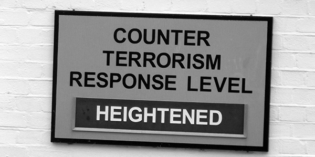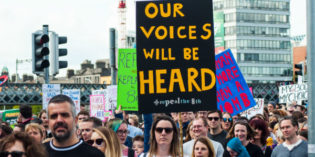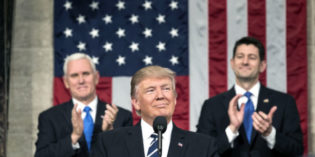Extending human and civic rights

Have changes in counterterrorism legislation before and after 9/11 curtailed civil rights?
Nicole Bolleyer examines the extent and form of legal changes across five western countries in the decades that span 9/11 and finds that in general the level of legal constraints on civil liberties has grown, though with considerable variation between countries and in types of restrictions.

#DeniedMyVote – why many EU citizens were unable to vote in the European Parliament elections
On Thursday 23 May, the UK participated in European Parliament elections. Citizens of all EU countries should be able to vote in these elections in the country they live, but many non-UK EU citizens found they had been excluded from the electoral register and were unable to vote. Toby James explains how the government’s long-term failure to improve our electoral laws and short-term pressures led to many people being denied their right to vote.

The ‘hourglass’ pattern of representation: why political parties are key to electing more women to parliament
The underrepresentation of women in politics is often portrayed as a pyramid, with the main problem identified as too few at the top. However, research by Ulrik Kjær and Karina Kosiara-Pedersen, shows that, in the case of Denmark, it follows an hourglass pattern, with underrepresentation worst at the intermediary stages of party membership and candidate identification. This suggests that party strategies for encouraging women to stand are important for improving representation.

A strange irony: How the EU withdrawal process ended up saving the Human Rights Act
Even though it looks increasingly likely the Brexit deal will not survive its first hurdle in parliament, there is yet more evidence in its pages that Brexit has saved the Human Rights Act and secured Britain’s long term future as party to the European Convention on Human Rights (ECHR), writes Frederick Cowell. In the Political Declaration on the Framework of Future relations with the EU, the document accompanying the withdrawal agreement, under the heading ‘core values and rights there is a commitment to ‘respect the framework of the European Convention on Human Rights’. In the text of the withdrawal agreement itself – which would be a legally binding on the government – there are provisions in the Protocols on Northern Ireland, which seem to assume the UK remains a party to the ECHR.

Book Review | Striking Women: Struggles and Strategies of South Asian Women Workers from Grunwick to Gate Gourmet by Sundari Anitha and Ruth Pearson
In Striking Women: Struggles and Strategies of South Asian Women Workers from Grunwick to Gate Gourmet, Sundari Anitha and Ruth Pearson offer an in-depth examination of two strikes – the Grunwick strike of 1976–78 and the strike at Gate Gourmet in 2005 – to highlight how South Asian migrant women have contributed to the struggle for workers rights in the UK. Praising the book’s incorporation of the wider social and historical context, Amal Shahid finds this an informative and accessible read for those passionate about the history and sociology of labour, gender and migration studies.

The Supreme Court’s decision on Northern Ireland’s abortion law – what now?
Kathryn McNeilly, Fiona Bloomer and Claire Pierson explain the background and implications of the recent ruling which, although found Northern Ireland’s abortion law to be incompatible with human rights law, dismissed the case on technical grounds.

The Irish Citizens’ Assembly on the 8th Amendment is a model for participatory democracy, which other democratic countries should follow
Ireland’s referendum to repeal the 8th Amendment of its constitution, and so liberalise the country’s abortion laws, was preceded by a Citizens’ Assembly which recommended these reforms. This form of democratic participation, which crucially was state funded and informed the Irish government’s approach, is a model for producing better democratic decision making, argues Jack Bridgewater.

Ireland votes to repeal the 8th: will Northern Ireland be next to liberalise its abortion laws?
Ireland’s abortion referendum on 25 May resulted in a victory for the ‘Yes’ side campaigning to reform the country’s strict abortion laws by repealing the Eighth Amendment of the Irish constitution. For Jennifer Thomson, the result underlines a dramatic transformation that has taken place in Irish society over recent decades, however it also shines a light on Northern Ireland, which now looks increasingly isolated in its lack of liberalisation around abortion and LGBT rights.

Repeal the 8th amendment to allow abortion in Ireland – this constitutional experiment has failed
On 25 May, the Republic of Ireland votes in a referendum to decide whether to repeal the 8th amendment of its constitution, which effectively outlaws abortion. Fiona de Londras explains how the 8th amendment works, and what the proposed legal changes are.

Collateral damage or a direct hit? Democratic ideals in the age of Trump
How robust are American democratic institutions under Trump’s presidency? Jennifer Earl argues that, even if his actions and lies do not amount to a coordinated effort to undermine democracy, the effect will be to systematically weaken the institutions of US democracy in the long term.


 Democratic Audit's core funding is provided by the Joseph Rowntree Charitable Trust. Additional funding is provided by the London School of Economics.
Democratic Audit's core funding is provided by the Joseph Rowntree Charitable Trust. Additional funding is provided by the London School of Economics.